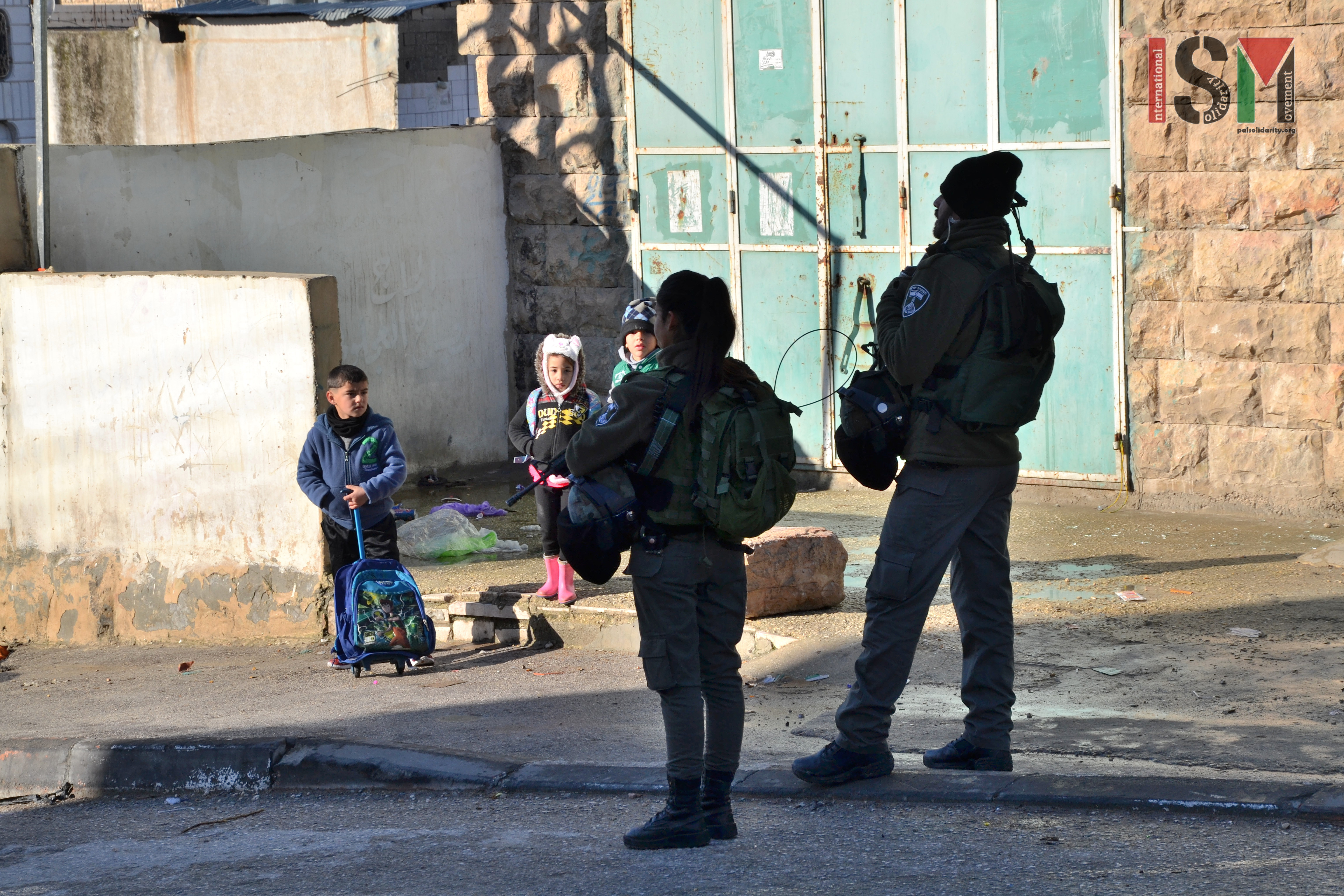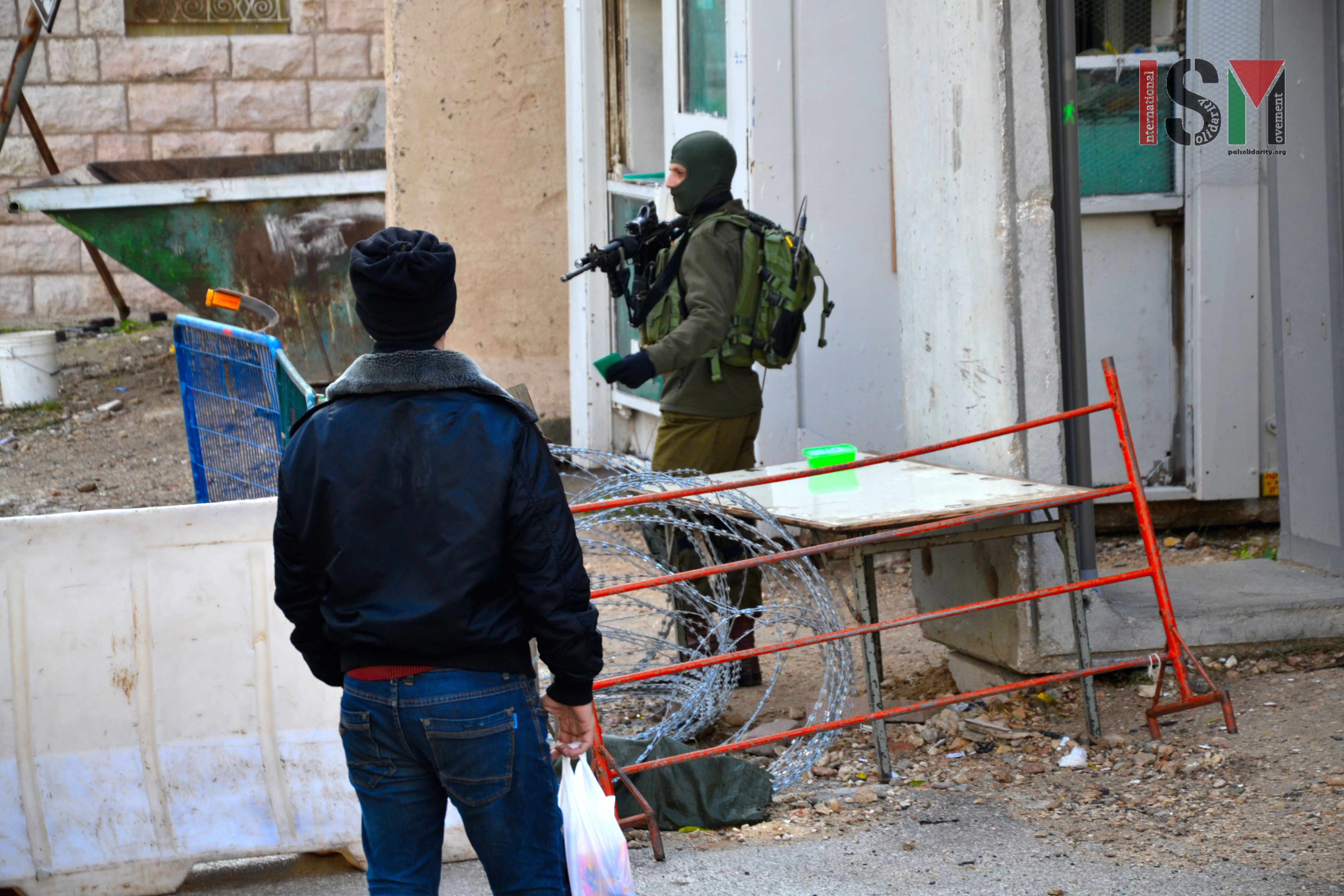Tag: Checkpoint
-
Collective punishment on the way to school – the Israeli forces’ ‘job’
1st February 2017 | International Solidarity Movement, al-Khalil team | Hebron, occupied Palestine On Wednesday, 1st February 2017, Israeli forces intimidated school-children on their way to school. In the process, they closed one of the main checkpoints delaying teachers and school-children as they were on their way to school. As groups of children were passing the checkpoint…
-
Photo story: Gilbert checkpoint impeding Palestinian daily life (January 2017)
31st January 2017 | International Solidarity Movement, al-Khalil team | Hebron, occupied Palestine In the old city of occupied al-Khalil (Hebron), Palestinians’ freedom of movement is impeded by a large number of Israeli checkpoints. In the Tel Rumeida neighborhood, many school-children and teachers are forced to pass at least one, often more, checkpoint daily on…
-
The checkpoint regime: Israel and the fragmentation of Palestinian society
31st January 2017 | International Solidarity Movement, al-Khalil team | Hebron, occupied Palestine There are 17 permanent checkpoints in the H2 area under full Israeli military control in occupied al-Khalil (Hebron), manned by Israeli forces and impeding Palestinian freedom of movement. The official rhetoric of the Israeli government is that these checkpoints serve ‘security purposes’.…



